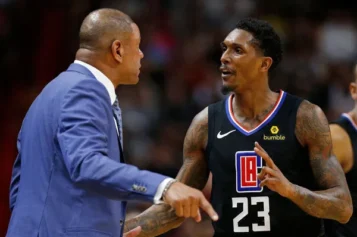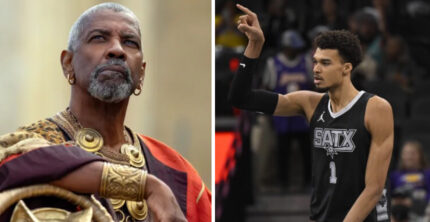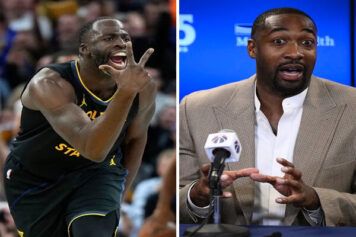In every athlete there is a fight. With some, it is a fight within, for others, the fight is external. These fights often force the hands of a player’s will. Not the will to win or lose, but the will to continue down a path that sometimes (uh, often) chooses him/her as opposed to him/her choosing it.
In the curious case that has been Dwyane Tyrone Wade’s life, that “will” has never been or morphed into or been mistaken as a “won’t.” But it has forever been—even now that he’s reached an envious level of status, fame and respect—tested.
Robbins, IL., not Chicago, is where this manifests. This is important in this testing of will and soul because the fact that Dwyane was not from the concrete that Barack, Oprah and Jordan once called home is the root of why he is who he’s become.
Truth spoken: Wade caught drama for not being from the inner city. He caught that suburb (in his case it was the South Suburbs) “hate” that every player, who excels on a grand level in high school, catches when they are making epic noise. Putting up epic numbers. In HL Richards high school, in Oak Lawn (another South Suburb), Dwyane was on some Michael Jordan prototype *ish. Killing any player and every team that stepped on any court, he was on anyone that got in his way. He left fossils and dents. A star born right in front of our eyes.
But that star was a few miles away from where the true stars were born. So, just like Ray Rice, when he was coming up in New Rochelle and no one took him seriously because he wasn’t doing what he was doing in one of New York’s five boroughs, Dwyane fell victim. Right time, wrong school, wrong district, wrong town, wrong area code. Wade got no love.
There was no Player of the Year awards, no Mr. Basketball recognitions, no D1 elite schools knocking down the doors to get him to sign to play for them. Dwyane wasn’t the bald-headed step-child that was slept on like Seaman’s furniture. He was the step-child with the high-top fade in a house full of dreadlocks. Yet, he fought through it. Constantly. Almost to the point of addiction. Every time his father would bring him into the city—the inner-inner city, where the blacktop was grey and the nets made of chains—to ball, he was beyond wanting to prove that he belonged; he wanted to prove it was “they” who weren’t on his level. They didn’t belong on the same court with him.
It was the Marquette thing; it was the getting drafted behind LeBron James and Carmelo Anthony and Chris Bosh (and Darko Milicíc!) thing; it was the playing in the shadow of Alonzo Mourning’s legacy in Miami thing; it was every thing. Every step was his personal Game of Death. One challenge after the next. His fortitude more than intestinal. In order to be somebody and have people spell his name right, Dwyane, not Dwayne, had to Bruce Lee every challenge.
Fight. Remember? In every athlete’s life there is a fight. This is what Dwyane seemed to do almost better than anyone in the game. Still does. It’s the “Robbins thing” in him. The “y’all better stop sleepin’ on me” thing that comes from players whose “pedigrees” don’t coincide with the standards placed on athletes we are supposed to bow down for.
His playbook wasn’t supposed to have a silver lining. He was not supposed to lead Miami to it’s first ever championship while playing with a half-of-Shaq. He wasn’t supposed to be the one chosen to revitalize the Converse legacy and have the torch of the brand passed to him from Dr. J. He wasn’t supposed to be a NBA Finals MVP before LeBron or Melo. He wasn’t supposed to be the one Michael Jordan hand-picked to carry on the signature shoe of the Air Jordan line. He wasn’t supposed to be the one to orchestrate the “taking our talents to South Beach” movement and make it work. He wasn’t supposed to be.
The foundation of his legacy rests in something so much deeper than just basketball. It is what he’s been able to prove, to be his truth through use of the game of basketball.
“What I want out of my life is real simple,” Wade once said. “It’s to make a difference. Everyone I ever meet, everyone I run into that meets me, I want them to walk away saying I changed their perspective on something. I would like to have some sort of impact on them. Now, I don't know what that difference or impact is, that I'm going to make because as you grow you learn more and more about yourself. But I believe God has put me here to do that, to make a difference in other people’s lives.”
And now this. A break to something bigger. A difference maker. With Way of Wade and his independent move to Chinese sneaker brand Li-Ning, Dwyane is simply taking that external fight to another level. Self-imposing his own next challenge. Not to prove to anyone that he belongs, but to show and prove that it is everyone else who has to get on his level.



